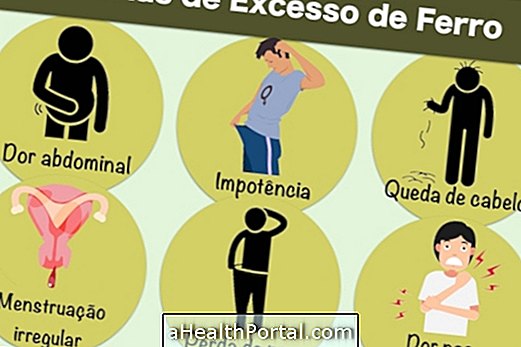The Attenuated Live Human Rotavirus vaccine, sold commercially under the name of RRV-TV, Rotarix or RotaTeq serves to protect children from gastroenteritis that causes diarrhea and vomiting caused by Rotavirus infection.
This vaccine serves to prevent Rotavirus infections, since when the child receives the vaccine his immune system is stimulated to produce antibodies against the most common Rotavirus types. These antibodies will protect the body against future infections, however they are not 100% effective, although they are very useful for reducing the intensity of the symptoms, which is of great help because Rotavirus causes intense diarrhea and vomiting.

What is it for
The rotavirus vaccine is administered with the aim of preventing rotavirus infection, which is a virus belonging to the Reoviridae family and causes severe diarrhea mainly in children aged 6 months to 2 years.
Prevention of rotavirus infection should be done as directed by your pediatrician, otherwise the baby's life may be at risk, as in some cases diarrhea is so severe that it can result in severe dehydration in a few hours. The symptoms of rotavirus can last 8 to 10 days and there may be severe diarrhea with a strong acidic odor, which may leave the baby's sensitive reddish area, as well as pain in the belly, vomiting and high fever, usually between 39 and 40ºC . Learn to recognize the symptoms of rotavirus infection.
How to take
The rotavirus vaccine is administered orally in the form of a drop and can be classified as monovalent when it contains only one type of attenuated or pentavelent rotavirus when it consists of the five types of rotavirus with low activity.
The monovalent vaccine is usually administered in two doses and the pentavalent in three, being indicated from the 6th week of life:
- 1st dose : The first dose may be taken from the 6th week of life to 3 months and 15 days of age. It is usually recommended that the baby take the first dose at 2 months;
- 2nd dose : The second dose should be taken at least 30 days apart from the first and it is recommended that it be taken up to 7 months and 29 days of age. It is usually indicated that the vaccine is taken at 4 months;
- 3rd dose : The third dose, which is indicated for the pentavalent vaccine, should be taken at 6 months of age.
The monovalent vaccine is available free of charge in basic health units, while pentavalent vaccine is only found in private vaccination clinics.
Possible reactions
The reactions of this vaccine are rare and, when they do occur, are not serious, such as increased irritability of the baby, low fever and isolated case of vomiting or diarrhea, as well as loss of appetite, fatigue and excess gas.
However, there are some rare and serious reactions, such as frequent diarrhea and vomiting, presence of blood in the stool and high fever, and it is recommended in these cases to go to the pediatrician so that some type of treatment can be started.
Contraindications of the vaccine
This vaccine is contraindicated for children with immune system compromised by diseases like AIDS and for children with allergy to any of the components of the formula.
In addition, if your child has symptoms of fever or infection, diarrhea, vomiting or stomach or bowel problems, you should talk to your doctor before starting the vaccination.





















